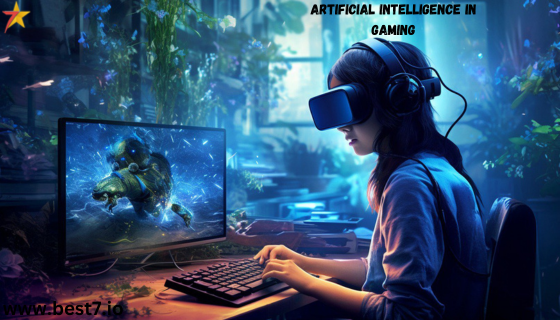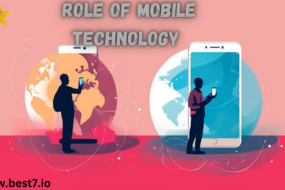
Artificial intelligence is fundamentally changing the gaming industry, revolutionizing game design and player experience in ways we could not have imagined. As AI technologies become more advanced, innovative capabilities have been found to deepen user engagement, create adaptive gameplay, and produce dynamic and infinite narratives.
The impact of AI on gaming is far-reaching, and it affects everything from character behaviors to procedural content generation. The future of AI and games will continue to push boundaries, and players will witness ever more impressive accomplishments.
AI and Game Design: How It Transforms Gaming Worlds
AI’s role in game design and development has significantly increased, and its current applications are having a profound impact on the industry. In early developments, AI was essentially used to create non-player characters with basic behavior patterns. Today, however, AI-driven characters have become incredibly sophisticated, accurately replicating and responding to humanlike actions and intentions.
For example, the Middle-earth: Shadow of Mordor’s Nemesis System uses AI to create NPCs that remember the player’s actions and adapt them in the next interaction. Consequently, when interacting with AI-driven characters, each gamer has a distinct experience. Furthermore, the future of AI and gaming design will see even more sophisticated, uncanny NPCs, thanks to machine learning algorithms that enable them to learn.
By 2026, over 60% of major game releases will feature advanced AI and advanced character interaction. Ultimately, AI-driven NPCs and procedurally generated worlds will present gamers with unrepeatable challenges, improving their immersion and game experiences.
AI’s Impact on Game Development
AI is also shaping the game development process, enhancing the design process, and reducing production time. The following are the key effects of AIs on game developments:
- Procedural Content Generation: AI can generate new levels, landscapes, or activities without the need for human interference; thus, developers can focus on fine-tuning their games. It is expected to be one of the most popular applications, with 70% of all open-world games leveraging this tool by 2025.
- Creating More Human-Like NPCs: Developing AI systems that can make smarter decisions and create more authentic interactions with a player, thus enhancing the experience.
- Adaptive Difficulty and Preload Balancing Tools: These tools are designed to adjust the level of difficulty for a certain player in real-time. It uses AI and other analytics tools to ensure that users are always sufficiently skilled to navigate the game without it being too easy or too challenging for them.
- Automated Testing and Quality Assurance: AI is increasingly used for automated testing, allowing companies to identify potential bugs and crashes quickly. It is an essential tool, as most developers are hesitant to release a product that has not been rigorously tested within the tight constraints of the gaming market.
- Conversational Characters: AI enables characters to respond to speech, allowing for exciting new interactions such as using voice commands or asking characters questions at any time.
- Optimization Scenarios: AI collects and analyzes relevant data to predict what players are likely to do and how software can be designed with that in mind.
- In-App Purchases: Machine learning algorithms analyze player actions and make the right suggestions for purchases, upgrades, or additional options throughout the game.
The Future of AI-Driven Interactive Storytelling
According to future projections, by 2027, the integration of AI-driven interactive storytelling will become a feature of 80% of role-playing games that keep players engaged. AI integration will make it possible to create stories that change every time the game is played, and replayability will be a major part of game design. The prevalence of adaptive narratives will not only help immerse the player in the game but also allow them to reflect on their decisions in the constantly changing gaming environment.
Personalized Gaming Experiences Powered by AI
AI is currently used to create personalized experiences for players, shaping the development of new games in a way that ensures the game adjusts to match the individual needs or preferences. Personalized gaming has become both a tool and an expectation of developers that should also be pursued by individuals.
Personal user experience implementation is not a particularly novel concept for game developers, as 65% of all gaming platforms will have adapted AI-driven approaches by 2025. Personalized features and tools are becoming a key part of gaming design, including simplified graphics or menus for novices or the disabled, as well as adaptive difficulty settings that ensure that the game is challenging regardless of the skill of the player.
The Future of AI in Gaming: What Lies Ahead
The outlook for the future clearly shows that AI will become a driving force in the development and design of new games, shaping the future of user engagement and massive changes in the way game developers approach their production.
By 2030, the entire mainline gaming title will be heavily influenced by AI, including such features as personalized storylines and the ways players interact with the environment. The use of intelligent NPCs, dynamic worlds, and AI-designed content will drive the user to experiment and explore things in new, exciting ways.
AI’s Growing Dominance in the Gaming Industry
The dominance of AI technologies in the games industry is already overwhelming. It is possible to observe that the interaction of AI and gaming shifts the experience to a new level. The use of machine learning in games would become more common in the future, as advances in this sphere provide significant advantages to designers and developers.
Moreover, the AI capability to boost immersion can also be mentioned, as it would be developing responsive environments that would make a player feel like a part of a game. That is why it can be concluded that as the AI continues to grow on the horizon, the gaming industry will be living through times of rapid growth, and it will largely rely on its influence on the player experience.












